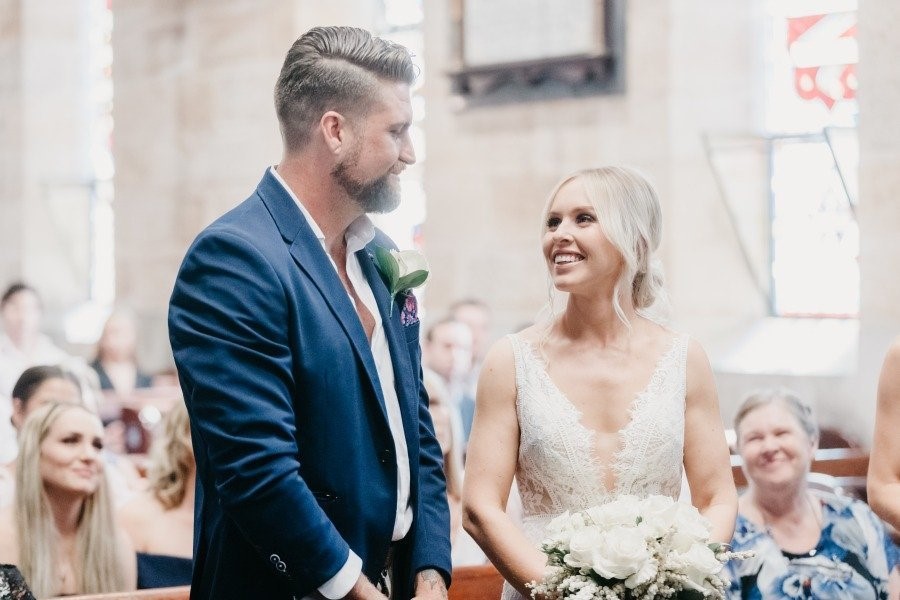3 Relationship Skills to Practice While Planning Your Wedding
This entry is from our Expert Guest series where wedding and honeymoon professionals share their best tips on creating memories that last a lifetime. We want to thank our friends at OURS and Elizabeth Earnshaw for sharing this great content.
When planning a wedding, most people focus on the event. Who is going to be there? What should it look like? How do we want to entertain? And because of this, couples can get wrapped up in all the planning details and forget to focus on how the wedding planning process can influence their relationship.
Wedding planning is full of opportunities to build the type of relationship you want with each other. Your life together does not begin after the festivities are over. It’s already begun. And the way that you navigate your relationship from here on out will impact your sense of security for years to come.
In particular, three important relationship skills get to be sharpened while navigating the planning of your big (or small) event:
- Giving and Taking Influence
- Compromising
- Boundary Setting
Giving and Taking Influence
What does that even mean?
The answer is simple: Being able to take influence means that you allow yourself to be influenced by your partner’s feelings, opinions, and needs. Unfortunately, during the stress of wedding planning, some couples may not take each other’s influence and dig their heels in and stay stubborn in their views and opinions.
For decades, John Gottman has studied married couples, and his research has provided him with understanding of the factors that lead some couples’ relationships to succeed while others fail. One of his findings is that couples who mutually influence each other tend to have more successful relationships compared to those who don’t.
When it comes to planning a wedding and making decisions, there are many opportunities for you and your partner to give and take influence — how big will the wedding be? What type of food will you have? Where will it be located? How much money will you spend?
It’s common for one partner to “roll over” and agree to do whatever the path of least resistance is. And, at times this works. But when it matters to you, it’s much better relationship practice to speak up and offer your true opinion to your partner.
Giving influence doesn’t mean that you always win. Your partner may not always take it. It doesn’t mean that your position takes priority. It does mean you share your thoughts and feelings in a clear, kind, and assertive manner. And taking influence means you’re open to hearing the other person’s thoughts and feelings without becoming defensive or trying to “win”.
Compromise
Planning an event gives ample opportunities for compromise. Compromise is when we take varying positions on a topic and come up with a solution that feels “good enough” for everyone involved. The steps to compromise are:
- Taking each other’s influence by truly understanding the other person’s position and making sense of it.
- Writing down and discussing everything you already agree on
- Writing down 1-2 things that absolutely must be a part of the agreement for you to feel “good enough”
- Coming up with a solution that combines each person’s “good enough list”
While most conflicts have obvious compromises, many couples struggle to get there. This is because they struggle to show flexibility and to move out of individualistic mindsets to more collectivist thinking.
A marriage, though, means you’ll need to start thinking and operating as one unit. Don’t make unilateral decisions that negatively impact your partner or take away their own dreams and happiness, instead, consider their feelings and make decisions that will benefit your relationship long-term. We recognize this can be hard. It can be difficult to change your initial idea or plan into a new plan. In fact, it might even bring up feelings of grief. Sometimes compromise brings up hard feelings. And, if done right both people have a little bit of a win and their outcome doesn’t violate either person.
Boundaries
Weddings also give us a chance to build strong boundaries in order to protect our relationships. Ask anyone who has ever planned a wedding and you’ll hear about the many frustrating boundary violations that can occur while planning the event:
- Parents who add guests to the list without asking
- Friends who push to bring a plus one or children even though the guest list has reached its max
- Venues or vendors that push for you to buy more than you agreed upon in your budget
The list goes on, and on.
While you can’t prevent people from being people, what you can do is learn how to protect what Dr. Stan Tatkin calls your “couple bubble.” A couple bubble is the secure space you and your partner can create around yourselves. This helps you to know that you have each other’s backs and that even when the world is noisy and pushy you can be safe and secure with each other.
With couples planning a wedding, there are two common and unintentional mistakes that couples make when it comes to enforcing boundaries.
The first mistake is ignoring the violations. The second mistake is throwing each other under the bus.
So how can a couple avoid these pitfalls? When a violation occurs, talk about it. Then, use the word “we” or “our” to communicate your boundaries. Even if your partner was more influential in the decision, it’s much more important to present a united front.
- “Our guest list is limited to 90 people.”
- “We’ve decided to have an adult-only wedding.”
- “Our budget is set and we plan to stick to it.”
This is something you’ll need to do well throughout your marriage, so it’s a great skill to practice now. The business of life like household budgets, choosing a home, when/if you have children, medical situations – they will all require you to be a team and work together to communicate your boundaries.
It’s Your Wedding, As a Couple
Wedding planning can be a lot of things – fun, stressful, exciting – and it’s also a great learning and relationship-building opportunity. You and your partner can look for ways to really show up for each other by taking each other’s influence, compromising, and setting healthy boundaries with others. Doing these three things will set you up for a secure, high-functioning relationship.
Learn more about OURS and how they can help you with their couples counseling.















